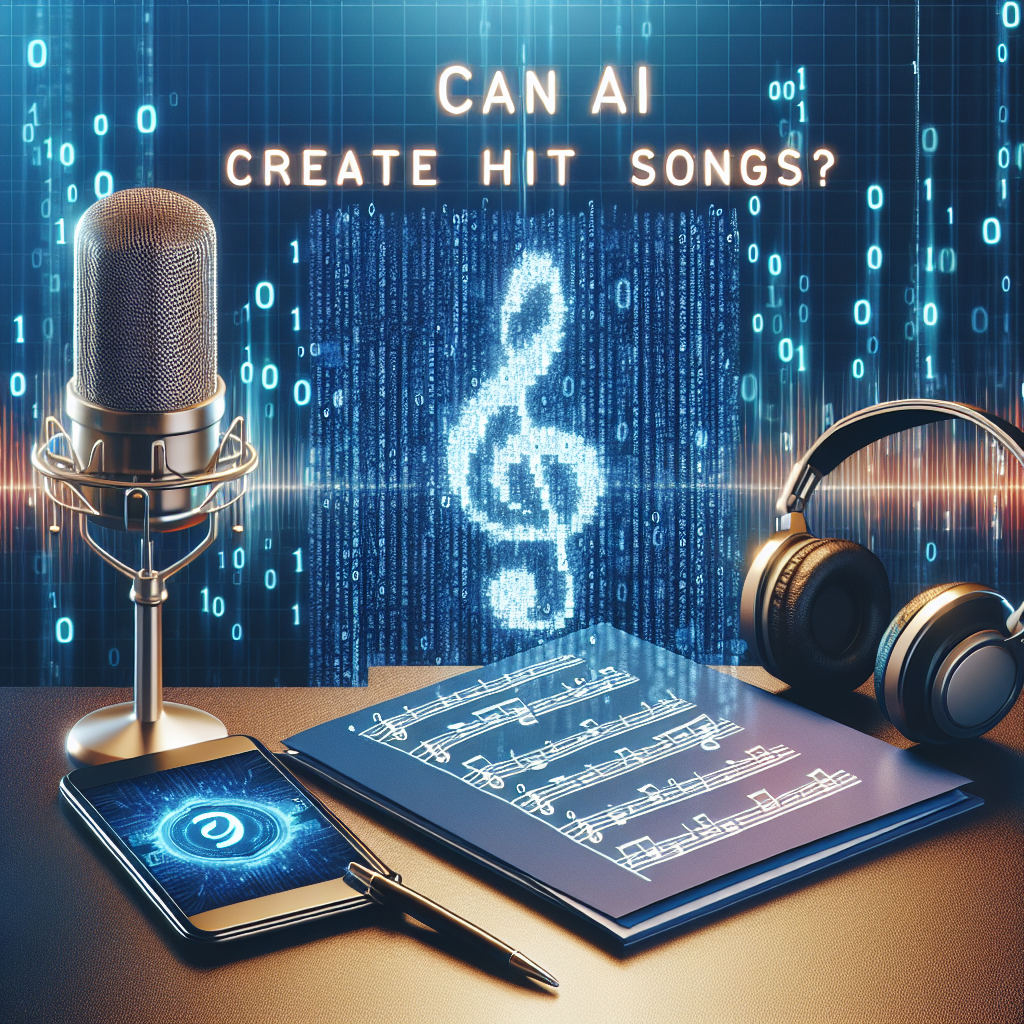The music industry has always been a place where creativity and innovation flourish. From classical masterpieces to modern pop hits, music has the power to captivate and move audiences in ways that few other art forms can. In recent years, artificial intelligence (AI) has emerged as a powerful tool for creating music, raising the question: can AI create hit songs?
AI has already made significant strides in the realm of music creation. Companies like Amper Music and AIVA have developed AI systems that can compose original music in a variety of styles, from classical to electronic. These systems analyze vast amounts of musical data to generate melodies, harmonies, and rhythms that are indistinguishable from those created by human composers.
One of the main advantages of AI-generated music is its speed and efficiency. While it can take human composers weeks or even months to write a single song, AI systems can produce multiple compositions in a matter of minutes. This rapid output allows artists and producers to experiment with different musical ideas and styles, ultimately leading to more creative and diverse music.
Another benefit of AI-generated music is its ability to explore new and innovative sounds. By analyzing patterns in existing music and experimenting with different combinations of notes and chords, AI systems can push the boundaries of traditional musical genres and create entirely new styles of music. This can be particularly exciting for artists who are looking to break away from the mainstream and explore uncharted musical territory.
Despite these advantages, there are still some limitations to AI-generated music that prevent it from consistently creating hit songs. One of the main challenges is the lack of emotional depth and nuance in AI-generated music. While AI systems can mimic the technical aspects of music composition, they often struggle to capture the raw emotion and passion that human composers bring to their work. This emotional connection is what sets hit songs apart from the rest and is something that AI has yet to fully replicate.
Another limitation of AI-generated music is its reliance on existing musical patterns and styles. While AI systems can produce technically proficient music, they often lack the creativity and originality that human composers bring to their work. Hit songs are often the result of a unique vision or perspective that resonates with audiences on a deeper level, something that AI has yet to fully grasp.
Despite these limitations, there is still potential for AI to create hit songs in the future. As AI technology continues to advance, we may see systems that are able to capture the emotional nuances of music and push the boundaries of creativity in ways that were previously thought impossible. Artists and producers are already beginning to experiment with AI-generated music in their work, incorporating AI-generated melodies and rhythms into their compositions to create new and exciting sounds.
In conclusion, while AI has made significant strides in music creation, there are still some limitations that prevent it from consistently creating hit songs. However, as technology continues to advance, we may see AI systems that are able to capture the emotional depth and creativity of human composers, leading to a new era of music that blurs the lines between man and machine.
FAQs:
Q: Can AI create music that is indistinguishable from human compositions?
A: AI has already made significant progress in creating music that is technically proficient and indistinguishable from human compositions. However, AI still struggles to capture the emotional depth and nuance that human composers bring to their work.
Q: Are artists and producers using AI-generated music in their work?
A: Yes, artists and producers are beginning to experiment with AI-generated music in their work, incorporating AI-generated melodies and rhythms into their compositions to create new and exciting sounds.
Q: Will AI be able to consistently create hit songs in the future?
A: While AI has the potential to create hit songs in the future, there are still some limitations that prevent it from consistently producing music that resonates with audiences on a deeper level. As technology continues to advance, we may see AI systems that are able to capture the emotional nuances of music and push the boundaries of creativity in new and exciting ways.

